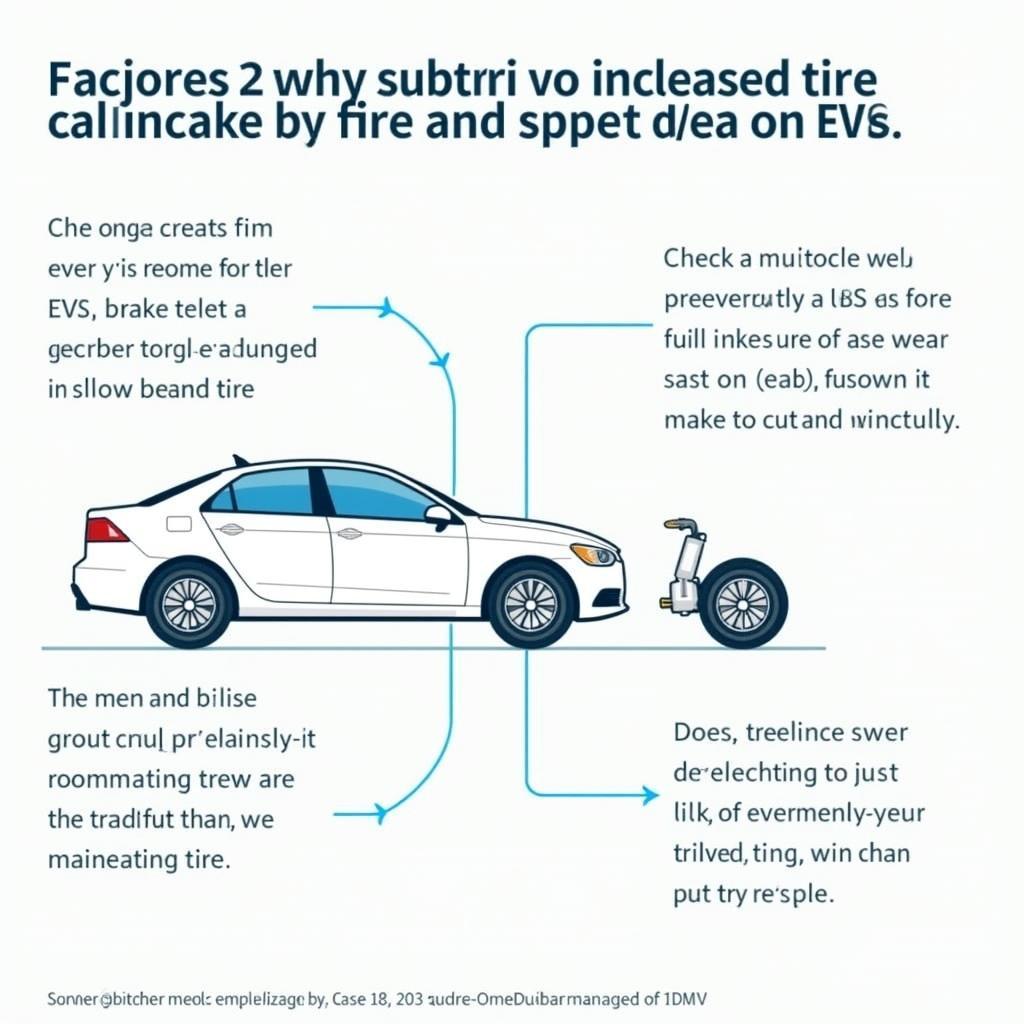Electric vehicles (EVs) are becoming increasingly popular, but potential buyers often wonder about the Service Cost Of Ev Cars. Understanding these costs is crucial for making an informed decision. This guide provides a detailed overview of EV service expenses, comparing them to traditional gasoline cars and highlighting key factors influencing these costs.
Breaking Down EV Service Costs
Unlike gasoline cars with complex internal combustion engines, EVs have fewer moving parts, leading to lower maintenance requirements. This translates to significant savings on service costs over the vehicle’s lifespan. While routine maintenance like tire rotations and brake pad replacements still apply, EVs eliminate the need for oil changes, spark plug replacements, and exhaust system repairs. This inherent simplicity contributes significantly to lower service costs. For example, a typical EV might require a service check every 10,000-20,000 miles, significantly less frequent than gasoline cars.
Key Factors Influencing EV Service Costs
Several factors can influence the service cost of EV cars. The make and model of the EV play a significant role, with luxury EVs potentially having higher service costs due to specialized components and technologies. Just like with traditional cars, the frequency of use and driving habits can impact maintenance needs. Harsh driving conditions can lead to increased wear and tear on tires and brakes. Geographic location also plays a role, as labor rates and parts availability can vary regionally. Finally, choosing between independent garages and dealerships for service can affect the overall cost.
Battery Health and Replacement Costs
One of the major concerns surrounding EVs is battery health and replacement costs. While EV batteries are designed to last for a considerable period, typically 8-10 years or 100,000-150,000 miles, replacement can be a significant expense. However, battery technology is constantly evolving, and battery prices are decreasing. Furthermore, many EV manufacturers offer lengthy battery warranties, providing some peace of mind to owners. Regularly monitoring battery health and adhering to recommended charging practices can help maximize battery lifespan.
Comparing EV Service Costs to Gasoline Cars
Over the long term, the service cost of EV cars is generally lower than that of gasoline cars. The absence of traditional engine maintenance significantly reduces recurring expenses. Consider this: If you find a great car service in chennai, you’ll still have more maintenance costs with a petrol car versus an EV. However, it’s essential to factor in potential battery replacement costs when comparing overall ownership expenses.
Tires and Brakes in EVs
Interestingly, EVs can experience slightly higher wear and tear on tires and brakes compared to gasoline cars. The regenerative braking system in EVs, while contributing to battery charging, can put added stress on brake components. Similarly, the instant torque of electric motors can lead to increased tire wear. However, these costs are generally offset by the savings on other maintenance items.
 Tire and Brake Wear in EVs
Tire and Brake Wear in EVs
Frequently Asked Questions about EV Service Costs
Here are some frequently asked questions about the service cost of EV cars:
-
How often do EVs need servicing? Typically, EVs require service every 10,000-20,000 miles.
-
What is the average cost of EV maintenance? While it varies, annual EV maintenance can be significantly less than gasoline cars, often hundreds of dollars less.
-
How much does it cost to replace an EV battery? Battery replacement costs can vary depending on the make and model, but prices are decreasing with advancements in technology.
-
Are there warranties for EV batteries? Most EV manufacturers offer substantial warranties on their batteries, typically 8 years or 100,000 miles.
-
What are some common EV service tasks? Common EV service tasks include tire rotations, brake inspections, and coolant checks for the battery thermal management system.
-
Can I service my EV at any garage? While some independent garages are equipped to service EVs, it’s often recommended to use certified dealerships for specialized maintenance and repairs.
-
How can I minimize EV service costs? Adhering to the manufacturer’s recommended maintenance schedule, practicing smooth driving habits, and properly caring for the battery can help minimize service costs.
Conclusion
Understanding the service cost of EV cars is essential for prospective buyers. While battery replacement can be a significant expense, the overall lower maintenance requirements of EVs often result in long-term cost savings compared to gasoline cars. By carefully considering the factors influencing these costs and comparing them to traditional vehicles, you can make a well-informed decision about whether an EV is the right choice for you. If you’re considering a high-end EV, check out services like luxury car service los angeles ca to understand the maintenance landscape. Also, for those interested in private car park management services, understanding EV service costs can be beneficial. Finally, those looking for a hire car service gold coast might find comparing EV and traditional car service costs helpful. Remember, responsible ownership, regular maintenance, and adherence to recommended practices can significantly contribute to minimizing service costs and maximizing the lifespan of your EV.
Need assistance? Reach out to us via WhatsApp: +1(641)206-8880 or Email: [email protected]. Our customer support team is available 24/7. Are you interested in learning more about Toyota service? Check out our article about a toyota car service centre in kalyan.
